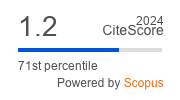Identity Development and Aggressive Lexicon
Keywords:
construction of meaning, subject, object, imperial stage of identity development, interpersonal identity development stage, aggressive language.Abstract
The paper is an attempt to explain the aggressive lexicon of adolescents. This explanation was based on the constructive-developmental theory of R. Kegan. Comparison of empirical data meaning-making evolution of identity predisposed to aggression youths with displays of their aggressive lexicon in intense interpersonal interactions indicate that the lexicon spokesmen of the Imperial stage of development a common with others reality is not shared, meaning the voice of his «antipode» they are constructed as a hindrance to achieving their own purposes and they are able to follow in the conditions of conflict largely one point of view without a broader context awareness, when part is taken as the whole and demonstrate lack of ability to subordinate perceived injustice to a more complex system. The young man asserts itself as an active elaborater of objection experience and is self so as is not other. At the next Interpersonal stage adolescents, given that the source of their self-definition is another person, his points of view are perceived as being occasionally provoke them to use aggressive lexic. The young man is inseparable from the psychological influence of another, does not differentiate himself from this influence, sees it as part of himself and he is aware of the dispute as an attack on themselves. Their attention doesn’t draw a personality in itself, but only information about the personality, his psychological profile, no other’s mastery, but his status. Instead of the ability to play with a difference of opposites, they play their game with labeling of peers that are counterproductive tactics. Use of aggressive lexicon in disputes amounts to a lost of opportunity to learn through conflict by a process of insight.
References
- Bakhtin, M. M. (1989). Estetika slovesnogo tvorchestva [Aesthetics of Verbal Creativity].
Moscow: Iskusstvo. - Freud, Z. (1990). Psihologiya Bessoznatelnogo [Psychology of Unconsciousness]. Moscow:
Prosveschenie. - Grigoryan, A. (2008) Pervyi, Vtoroy i Tretiy Chelovek [The First, Second and Third Man].
Moscow: Yazyki Slavyanskoy Kultury. - Horrigan, J. P., Barnhill, L. (1997). Risperidone and explosive aggressive autism. Journal of
Autism And Developmental Disorders, 27 (3), 313−323. - Kegan, R. (1982). The Evolving Self. Cambridge, MA : Harvard University Press.
- Kegan, R. (1994). In Over Our Heads: Mental Demands of Modern Life. Cambridge, MA :
Harvard University Press. - Lahey, L., Souvaine, E., Kegan, R., Goodman, R., Felix, S. (1988). A Guide to the SubjectObject Interview: Its Administration and Interpretation. Cambridge, Massachusetts: Harvard
University Graduate School of Education. - Leontyev, A. N. (2000). Lektsiyi po Obshchey Psykholohyy [Lectures on General
Psychology]. Mosсow: Smysl. - Luria, A. R. (1979). Yazyik i soznanie [Language and Consciousness]. Moscow: Izdatelstvo
Moskovskogo Universiteta. - Piel, J. A. (1990). Unmasking sex and social class differences in childhood aggression:
The case for language maturity. Journal of Educational Research, 84(2), 100−106. - Praktikum po psihodiagnostike [Practicum on Psychodiagnostic]. (1990). Moscow:
Izdatelstvo Moskovskogo Universiteta. - Sas, T. (2012). Mif o psihicheskom zabolevanii [Myth on Psychiatric Disease]. Moscow:
Kanon. - Scherbinina, Yu. V. (2008). Verbalnaya agressiya [Verbal Aggression]. Moscow: LKI.
- Stevenson, J. (1996). Developmental changes in the mechanisms linkinglanguage
disabilities and behaviour disorders. In J. H. Beitchman, N. Cohen, M. M. Konstantereas,
R. Tannock (Eds.), Language, learningand behavior disorders (pp. 78–99). Cambridge, England:
Cambridge University Press. - Vygotsky, L. S. (1932). Myishlenie i rech [Thinking and Speech]. Moscow:
Gosudarstvennoye Izdatelstvo.







 Creative Commons «Attribution» 4.0
Creative Commons «Attribution» 4.0